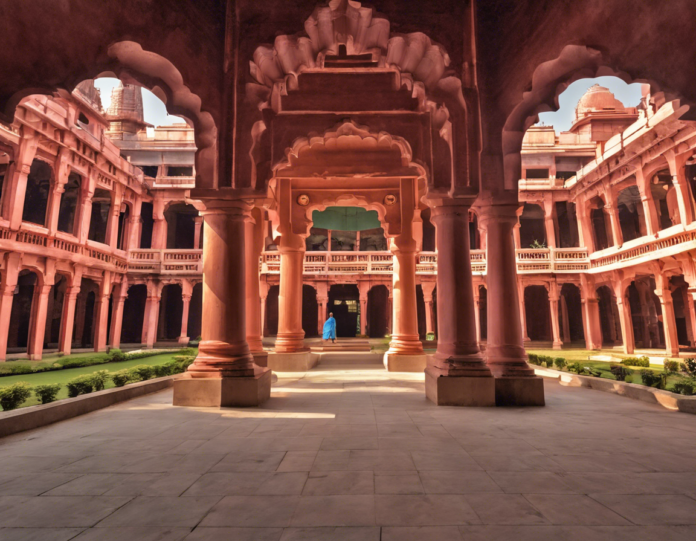Nestled in the Indian state of Bihar, Bodh Gaya is a place of profound spiritual significance for millions of people around the world. Known as the site where Gautama Buddha is said to have attained enlightenment under the Bodhi tree over 2,500 years ago, Bodh Gaya attracts pilgrims, scholars, and spiritual seekers from all corners of the globe. In this comprehensive guide, we will delve into the mesmerizing world of Bodh Gaya, exploring its history, significance, attractions, and practical travel tips. Whether you are planning a visit to this sacred destination or simply wish to deepen your understanding of Buddhist heritage, this article will serve as your ultimate gateway to the spiritual haven of Bodh Gaya.
History and Significance
Bodh Gaya holds a special place in the hearts of Buddhists worldwide as the holiest pilgrimage site associated with the life of Lord Buddha. It was here, under the revered Bodhi tree, that Prince Siddhartha Gautama attained enlightenment and became the Buddha, the Awakened One. This event, known as the Bodhi (or enlightenment), marks the birth of Buddhism as a major world religion.
The Mahabodhi Temple, a UNESCO World Heritage Site, stands at the very spot where Buddha achieved enlightenment. Constructed in the 5th or 6th century CE, the temple is a masterpiece of ancient Indian architectural design and symbolizes the spiritual heart of Bodh Gaya. Pilgrims from all Buddhist traditions flock to this sacred site to pay homage, meditate, and seek blessings.
Top Attractions in Bodh Gaya
-
Mahabodhi Temple: The focal point of Bodh Gaya, this ancient temple is a cultural and spiritual treasure trove.
-
Bodhi Tree: Believed to be a direct descendant of the original tree under which Buddha meditated, this tree is a powerful symbol of enlightenment.
-
Great Buddha Statue: Standing an impressive 80 feet tall, this statue is a mesmerizing sight that exudes tranquility and wisdom.
-
Vajrasana: The Diamond Throne, the seat of meditation where Buddha is said to have sat cross-legged during his enlightenment.
-
Japanese Peace Pagoda: A symbol of peace and harmony, the pagoda offers stunning views of Bodh Gaya and the surrounding landscape.
Meditation and Spiritual Practices
Bodh Gaya is not just a place of historical importance; it is also a vibrant center for meditation and spiritual practices. Visitors can participate in meditation sessions, Dharma talks, and retreats conducted by renowned Buddhist teachers and masters. The serene ambiance of Bodh Gaya, coupled with the collective energy of devoted pilgrims, creates a conducive environment for inner reflection and spiritual growth.
Practical Travel Tips
-
Visa: International visitors to India require a valid visa. Ensure you have the necessary travel documents before embarking on your journey.
-
Weather: Bodh Gaya experiences hot summers and mild winters. The best time to visit is during the cooler months from October to March.
-
Accommodation: There are various accommodation options in Bodh Gaya, ranging from budget guesthouses to luxury hotels. It is advisable to book in advance, especially during peak tourist seasons.
-
Local Cuisine: Indulge in traditional Bihari cuisine, known for its flavorful vegetarian dishes and sweet treats. Don’t miss trying Litti Chokha, a popular regional specialty.
-
Respect Local Customs: Bodh Gaya is a sacred place for Buddhists. Visitors are advised to dress modestly, remove shoes before entering temples, and refrain from loud behavior to show respect for local customs and traditions.
Frequently Asked Questions (FAQs)
Q1: What is the best way to reach Bodh Gaya?
A: The nearest airport is in Gaya, approximately 17 km away. Bodh Gaya is well-connected by road and rail, with regular bus and train services from major cities in India.
Q2: Can non-Buddhists visit Bodh Gaya?
A: Yes, Bodh Gaya welcomes visitors of all faiths. The teachings of compassion, wisdom, and inner peace resonate with people from diverse backgrounds.
Q3: Is it necessary to have prior experience in meditation to visit Bodh Gaya?
A: No, Bodh Gaya welcomes all visitors, regardless of their meditation experience. It is a place for learning, introspection, and spiritual exploration.
Q4: Are there any specific dress codes to follow in Bodh Gaya?
A: While there is no strict dress code, it is advisable to dress modestly out of respect for the sacredness of the place. Covering shoulders and legs is appreciated, especially when visiting temples.
Q5: What are some etiquette tips to keep in mind while visiting Bodh Gaya?
A: Be mindful of your behavior, maintain silence in temple premises, and avoid taking photos where prohibited. Remember to remove shoes before entering temple buildings.
Embark on a spiritual journey to Bodh Gaya and immerse yourself in the timeless wisdom of Buddha’s teachings. From the sublime tranquility of the Mahabodhi Temple to the soul-stirring chants of monks, Bodh Gaya offers a sanctuary for seekers of truth and enlightenment. May your pilgrimage to this sacred land be filled with peace, inspiration, and profound spiritual insights.


